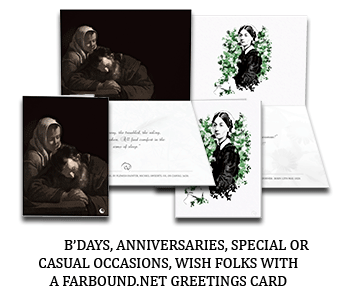The Mahabharata.
Translated by Chakravarti Rajagopalachari.
The Mahabharata like its predecessor the Ramayana is similar to the Homeric Iliad and Odyssey. The poem is a mix of mythology, heroic deeds, large scale warfare, history and moral codes. On the surface it is a children’s book served out to kids in India at an early age as bedtime stories with no particular emphasis either on history or morals, only to keep them fascinated with tales of gods, demons and fantastical events.
On a deeper level it is an insight of ancient India. Of the people who dwelled in that age, their way of life, beliefs, warfare and preferences.
For instance Karna, the firstborn son of Kunti (one of the central characters) can be considered (depending on the bent of mind of a reader) as a love child begot before a woman’s marriage and for reasons of dishonor and shame abandoned at birth – a custom that still prevails in large parts of modern day India where single mothers and relationships before marriage are taboo even in well educated circles.
In fact several scholars have also pointed out that to understand from where sprouts many of modern day India’s gods, goddess and values adopted by the country’s Hindu society at large, one has only to start exploring the epics.
The origin of the stories within the epic is debatable. It has been revised and transformed so many times by so many poets through the ages that is impossible to zero down on the actual events that inspired many of them.
While it is traditionally believed the epic to the work of the poet and sage Ved Vyasa who is thought to have lived in the 3rd millennium, historians speculate the roots to date farther back in time to a much obscure past. Vyasa was only the first to compile all the stories, restructure them to suit his era, and put them in, as one could say, in a single book, (just like other poets would do in later times) and in doing so created one of the lengthiest poems in the world.
Indeed the Mahabharata eclipses both the Homeric Iliad and Odyssey not just by span of time but in length as well. And where it strongly resembles the Iliad the most, is that in both poems, barring aside interventions of divine powers, the cause of a great war is attributed to the role of a woman.
The central plot of the epic, however, revolves around intense jealousy, hatred and long sought revenge that engulfs a royal family as brother is provoked to take up arm against brother in a war so savage that the victor limps of the field not with elated pride of a conqueror but a heavy conscience of having annihilated own kin – which traditional wisdom has since time immemorial explained as the victory of the righteous over the wicked.
This English translation of the epic was undertaken and accomplished by Chakravarti Rajagopalachari – a learned scholar, patriot, politician and the first governor general of independent India. The book was considered a need of the hour for a book university purposely created by the Bharatiya Vidya Bhavan (an institute of Indian culture in Mumbai) that aimed at highlighting Indian literature among a vast collection for educational purposes.
Readers can enjoy the Mahabharata as a light read just as they would the Iliad and Odyssey, disregarding the events it contains as simple fairy tale, attesting it as pure fiction and unbelievable or delve deeper into the fabric of ancient society, values and codes, forming their own opinions and views just like the epic has come to be regarded by more serious readers.




